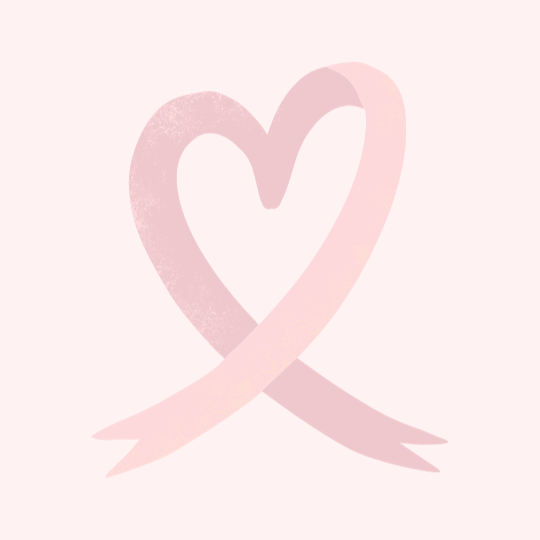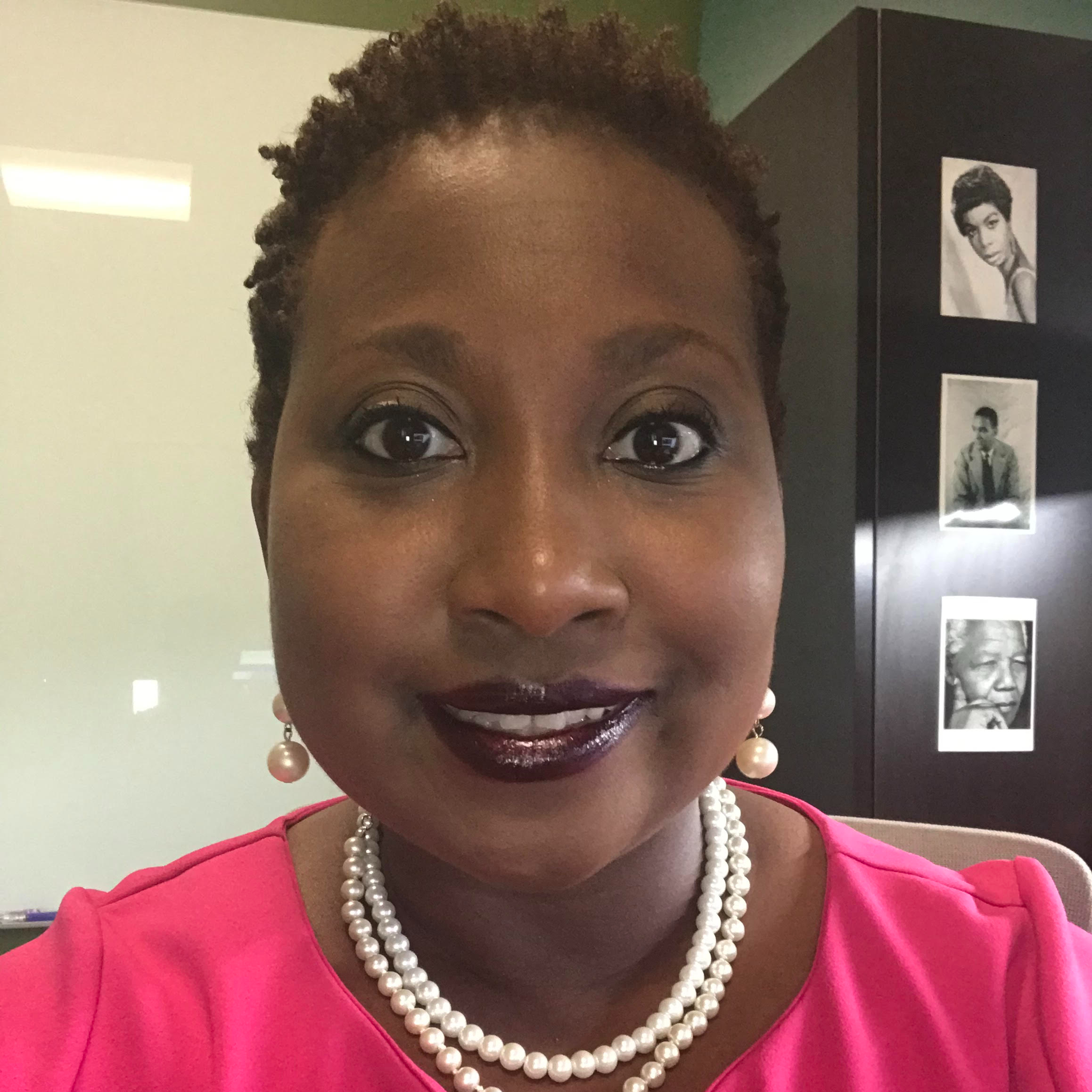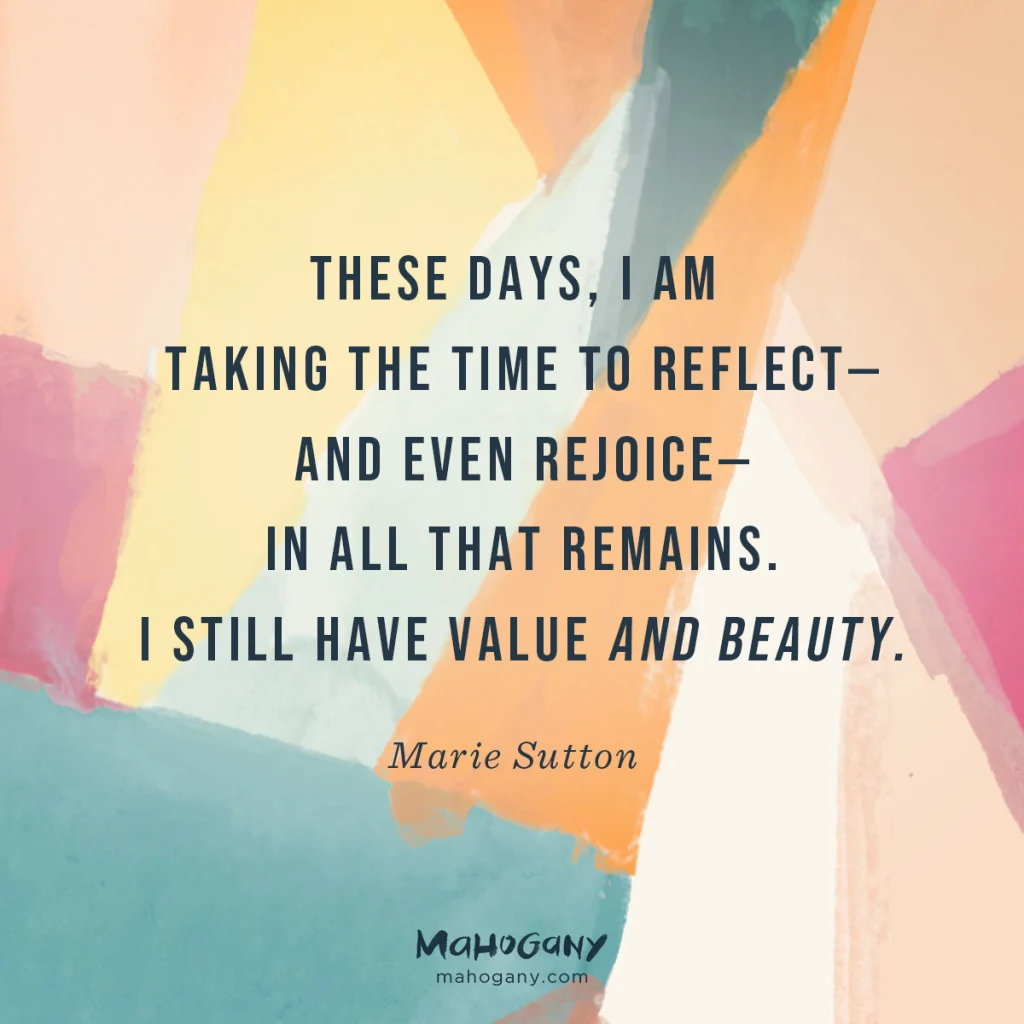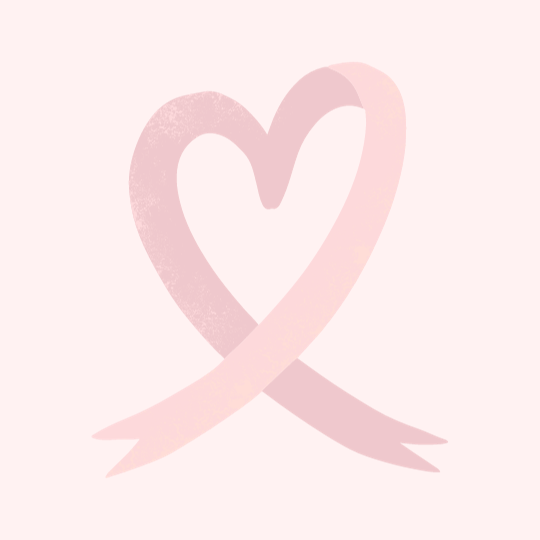
I plopped down on the side of my unmade bed in search of some quiet. My noisy life of work, kids and concerns had me in a whirlwind. But I couldn’t quite steady myself. I didn’t feel well, but I could not put my finger on why.
Maybe it was fatigue from the constant late-night work projects or the assortment of greasy fast food dinners each night. Perhaps it was the unholy amount of obligations at church or the mounting stress of trying to “make a dollar out of fifteen cents.” I didn’t know what or where, but inside, something felt off.
I hadn’t been to my OB/GYN in a couple of years. I continued to push my appointments back. Going to a doctor was an inconvenient luxury that I could not seem to fit into my life.
The ‘offness’ persisted.
When I finally did go to the doctor I mentioned that my right breast felt different but could not articulate the how or the why. I promptly got a mammogram, but was told that they didn’t see anything alarming.
“Come back in a year,” they said.
OK. Maybe it’s just me.
A year later, the nagging feeling of offness was even stronger. This time, I was able to put words to my concerns. My right breast was deflated; not as bulbous as before. I was extremely fatigued and foggy-brained. I got another mammogram. An ultrasound. Still nothing.
“But since you feel so strongly,” the doctor said. “Let’s do an MRI.”
That’s when they saw them: tumors on my chest wall. They scheduled a biopsy, and on a balmy Friday morning I got the call, “It’s breast cancer.”
Breast cancer is the leading cause of cancer death for Black women in the U.S. White women get breast cancer more often than we do, but according to the Breast Cancer Research Foundation, African American women have a 40 percent higher death rate.
Much of that is because we are often diagnosed in the late stages of the disease. The fear of going to the doctor or the lack of proper care by medical professionals are contributors.
In 2020, WebMD reported a survey by the pharma company Genentech who polled more than 2,200 Black and Hispanic patients. Most said “they don’t feel like the health care system treats all patients fairly.” And that they “skipped follow-up appointments or stopped seeking care because they didn’t feel understood.”
And, our stained history with healthcare in this country doesn’t help. Many of us have heard stories of the Tuskegee Study, the injustices of Henrietta Lacks and experiments done by Dr. Marion Sims, the so-called “Father of Gynecology.” It’s dizzying, and enough to keep a lot of Black folks as far away from a doctor’s office as possible. I have a friend who, right now, will not go back for some follow up treatments for her aggressive cancer because of her traumatic experience.
For me, I was one of those with late stage diagnosis. The doctor told me that the disease had spread throughout my breast and into the lymph nodes under my arm. It was Stage III, and there are only IV Stages.
A lot of things ran through my mind: fear, sadness. But also regret. My body had been trying to tell me, but I would turn down its warnings and turn up the noise of life. I wondered how long it took for the disease to sprout, grow and then spread. Was it during those missed appointments or amid that “Let’s wait a year.”
Since it was so advanced, I had to prepare myself for intense chemotherapy, radiation, the removal of 30 lymph nodes and the loss of my right breast.
Thankfully, I recently celebrated my five-year survivor mark. I feel blessed and I cannot help but to share lessons that I hope will bring awareness to people who look like me.
- Know your body’s normal. You know your body. When something is different, or off, pay attention. Go to the doctor, speak up and be specific. When I told doctors that my breast was deflated and changed in texture that was their red flag. Learn to articulate your struggle.
- Know your numbers. Find out your blood test levels. Sign up for your patient portal and don’t toss the results they hand you at the doctor. Study them. After digging in my patient files I learned that my vitamin D levels had been severely low for nearly a decade. No one ever told me. That could have been a sign that something was wrong.
- Know your family history. Often, a history of disease can be an indicator of something to watch. I didn’t know that many of my family members had cancer until I was on the phone in the doctor’s office asking relatives questions in order to complete a form. In some cases, your insurance will greenlight important tests if you have family history.
- It’s OK to break up with your doctor If you feel like you are not being heard, find a physician who will. Studies show that often Black people get better outcomes from doctors who look like them. I had a doctor who I felt did not get me. Once I changed to another, my confidence in my healthcare improved. Sadly, though, CNN reports that Only 5.7% of U.S. doctors are Black. There are resources that can help in your search such as https://www.findablackdoctor.com/
- Love yourself enough to get healthy. Another reason Black women have poor outcomes with breast cancer is because pre-existing conditions make overcoming it much harder. “Diabetes, heart disease, and obesity are some of the comorbidities that complicate breast cancer care,” noted the Breast Cancer Research Foundation. The American Cancer Society also reports that “up to about 30% of breast cancers may be preventable with changes in lifestyle, which includes changing excess body weight, physical inactivity, and alcohol intake.”
- Take a hard look at your bathroom shelf. It pains me to write this, but according to Breast Cancer Prevention Partners “Black women who used hair dye at least every 5–8 weeks had a 60% higher breast cancer risk.” Many products that are marketed to Black women “contain some of the most worrisome ingredients in cosmetics,” they reported. These include hair relaxers, Brazilian blowout treatments and acrylic nails. Do your research and find safer products in the Non-Toxic Black Beauty Database.
Empower yourselves with the knowledge to fight breast cancer. Even though the current statistics feel stacked against us, we can — just like we have and done with many other things before — overcome.




Leave a comment